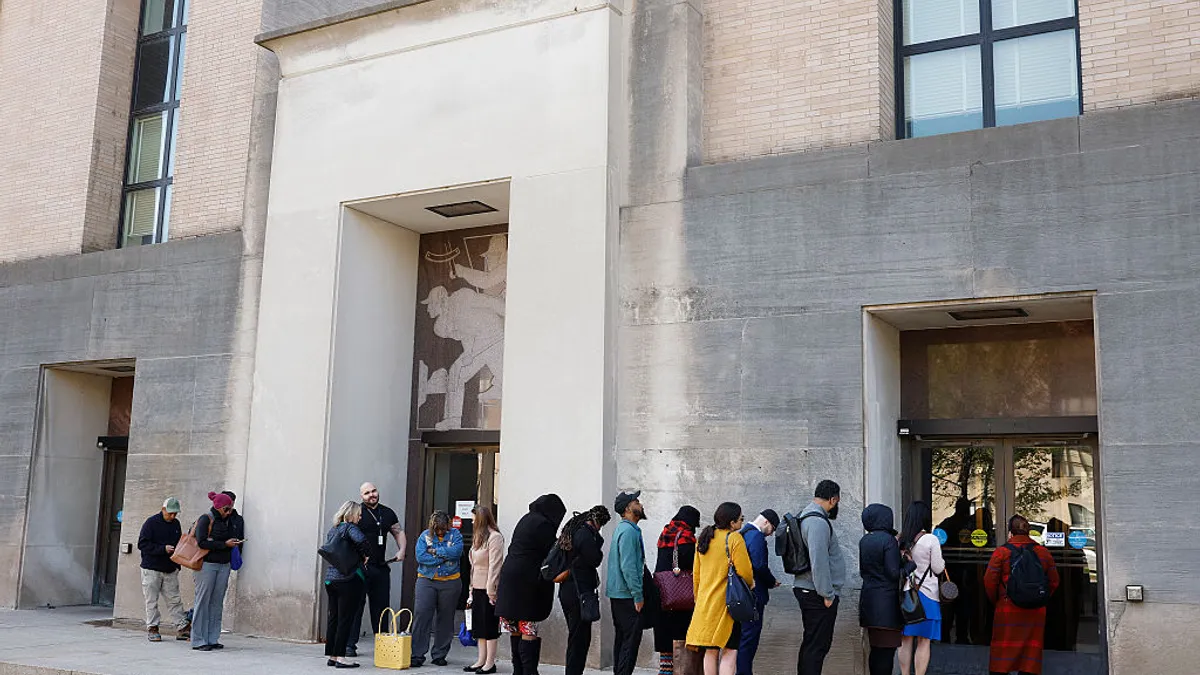The advent of CAR-T cell therapy has revolutionized the field of oncology. Now, a highly successful — albeit tiny — CAR-T cell therapy trial that eliminated all evidence of systemic lupus erythematosus (SLE) in five patients has raised hopes that the immunotherapy might help people with severe autoimmune diseases as well.

Even before the first CAR-T cell therapy — the CAR stands for chimeric antigen receptor — was approved to treat cancer in 2017, officials at the Lupus Research Alliance (LRA) suspected it could be a potential weapon against autoimmune disease. In 2015, the group awarded a Lupus Innovation Award grant to Marko Radic from the University of Tennessee Health Science Center for the use of CAR-T cell therapy to eliminate certain B cells in mice, said Teodora Staeva, chief scientific officer at the LRA. These white blood cells can go rogue in some instances, producing autoantibodies that attack the body’s own tissues and organs, while driving a patient’s lupus symptoms. Radic showed that eliminating these cells could help reduce lupus symptoms and disease progression in mice, helping pave the way for the more recent study in people, the results of which was published in Nature Medicine in September.
Taking on lupus
The five patients in the Nature Medicine study all had severe disease and were experiencing a constellation of debilitating symptoms ranging from lupus nephritis, a severe immune-system attack on the kidneys, to skin and joint damage, as well as lung and heart problems. Up until the point of the study, no other medications had provided relief.
“Really, they had the kitchen sink thrown at them and they were not responsive to treatments,” Staeva said.
Lupus has no cure and until recently, doctors have only been able to help patients manage symptoms. But last year, the FDA OK’d two new drugs that target the disease: AstraZeneca’s Saphnelo, a monoclonal antibody that became the first approval for systemic lupus erythematosus (SLE) in 10 years; and Aurinia’s Lupkynis, the first-ever oral therapy for lupus nephritis, a progression of SLE that can cause kidney damage and failure.
Ultimately, the patients signed on for the experimental CAR-T cell therapy in a study led by Dr. Georg Schett, vice president of research at the Deutsches Zentrum für Immuntherapie, and professor and chair at the Department of Internal Medicine at FAU Erlangen-Nuremberg and Universitätsklinikum in Germany. The treatment, like oncology-based CAR-T cell therapies, began with chemotherapy, followed by an infusion of patients own modified T cells, which were trained to target specific B cells with a surface protein called CD19.
But CAR-T cell therapy can carry substantial risks, including nervous system reactions, allergic reactions and serious infections.
“That’s why I think the investigators here treaded so carefully, because they were very concerned about the potential severe adverse events in lupus. It was remarkable that the lupus patients didn't display any major adverse events,” Staeva said. Three of the five patients treated with the CAR-T cell therapy did develop a potentially serious systemic reaction to the treatment, called cytokine release syndrome, but the cases were mild and manageable, she said.
The treatment successfully depleted the B cells in all five patients, along with all signs of the disease after three months. Even when B cells returned, they functioned normally almost as if the treatment had hit the reset button on their immune systems.
“The patient who was treated first, I believe, is now 18-months post-treatment. They remain disease free according to all of the parameters that were tested,” Staeva said. “The patient who was treated most recently, I think, they are now at five-months post-treatment. And the other ones are anywhere between eight-months to a year. They're disease free. Their SLE disease activity is at zero.”
Tempered optimism
While it remains to be seen if these drug-free remissions will last, the results were nonetheless dramatic and open the door to larger studies.
“This is a very, very exciting finding and one that needs to be pursued in much larger groups of patients and for a much longer period of time to assess both long-term durability and safety,” Staeva said. “I think it's really important right now to emphasize that the excitement is based only on five patients and so we have to be very cautious about over-interpreting the results. We also have to be patient to see how this works when applied to a much broader group of individuals with lupus.”
Because of the potential for serious risks, the treatment will likely be considered primarily for people with very severe forms of lupus.
“Once this develops further, when we have more data and if it continues to be quite safe in a much larger group of people, then this could possibly be contemplated for individuals with milder disease,” Staeva said. “But based on what I know now, I don't see this happening in the very near future. I think we have a long way to go to really be absolutely sure of the safety of this before it’s applied more broadly.”
Honing the approach
In addition to paving the way for more research, this academic trial is likely to spark commercial interest among pharmaceutical companies, Staeva said. The LRA has a clinical trials arm called Lupus Therapeutics, which is a fully owned subsidiary of LRA. Lupus Therapeutics manages the Lupus Clinical Investigators Network of 57 academic medical centers in the U.S. and Canada, she said. This network collaborates with pharma companies on trials, and while there is nothing specific in the works right now, Staeva said she would not be surprised to see interest emerge. The LRA is also open to supporting more studies, particularly those that will examine the mechanisms that underlie the strong results in this trial, she said.
There are already some CAR-T cell therapy trials underway for other autoimmune diseases. One, at the University of Pennsylvania and sponsored by Cabaletta Bio, is using a CAR-T cell approach to treat pemphigus vulgaris, a potentially fatal autoimmune disease that causes blisters in the mouth and on the skin. Researchers are trying to use CAR-T cells to kill only the B cells specific to the condition while preserving healthy immune cells that protect against disease. The treatment, DSG3-CAART is currently being tested in a phase 1 trial, and has received orphan drug and fast track designation from the FDA. The approach is also being considered for other autoimmune conditions, including myasthenia gravis, a neuromuscular disease.
In addition, Staeva said that Schett plans to continue using the same CAR-T approach in additional lupus patients, and plans to treat patients with other autoimmune conditions such as scleroderma, a group of diseases that cause skin stiffening and tightening, and myositis, a muscle-wasting condition.
“He's planning a much larger study in Germany, an academically based study, that is supposed to start early next year,” Staeva said. “I anticipate that this is going to generate quite a bit of interest amongst the commercial sector so I won’t be surprised if there are efforts that might follow with companies.”


















